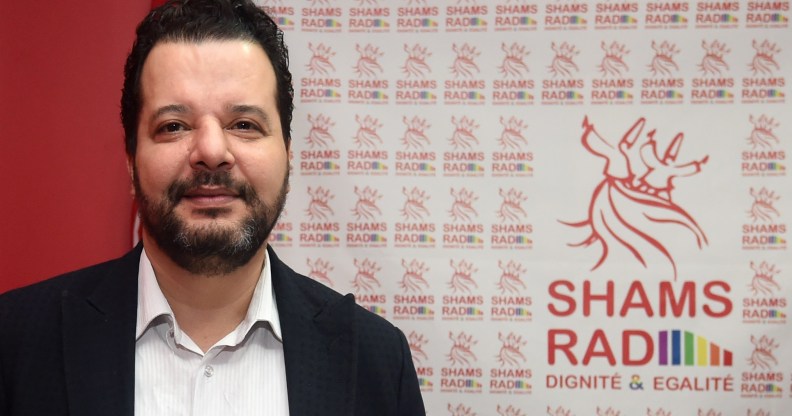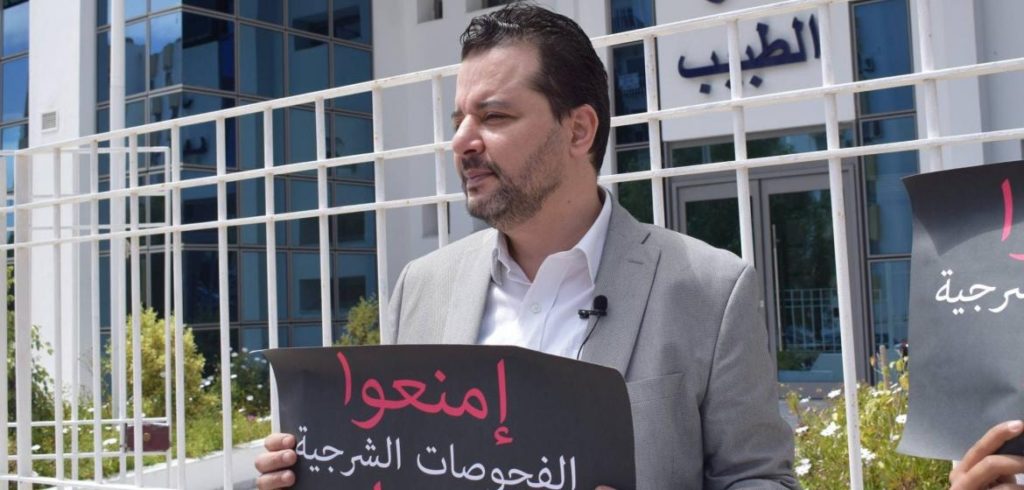Gay Tunisian politician Mounir Baatour is running for President

Tunisian lawyer Mounir Baatour, president of Association Shams, which supports the depenalization of homosexuality in Tunisia (FETHI BELAID/AFP/Getty)
A gay politician has announced he is running to become President of Tunisia, where homosexuality is still illegal.
Mounir Baatour, the head of the country’s fringe Liberal Party and a well-known campaigner for LGBT rights, has announced he will contest the country’s Presidential elections on November 10.
The move is a bold step in Tunisia, where where gay sex is still illegal and LGBT+ people face routine discrimination and even forced anal probes.
Mounir Baatour is running for President of Tunisia
The 48-year-old lawyer, who has faced arrest himself previously, has led efforts to challenge the law via Tunisian LGBT+ group Association Shams.
Baatour says he would stand for a progressive and modern Tunisia that defends the rights of all people and fights against corruption.

LGBT+ rights campaigner Mounir Baatour (Facebook)
He said: “Tunisia needs a democratic programme that can include the different identities, cultures, beliefs, and languages of this country.
“Our programme aims to democratise power, strengthen the Parliament and give more weight to local institutions.”
Incumbent president Beji Caid Essebsi is not seeking reelection in November.
However, Baatour faces a steep climb to ever gain power, with many in the country rejecting the prospect of a gay leader.
If elected, he would be the first out leader in the Arab world.
Decriminalising homosexuality needs ‘political will’
Speaking to International Policy Digest, Baatour added: “Political will is needed to reduce homophobia in society.
“When in 1956 President Bourguiba banned polygamy, allowed abortion and adoption and banned the repudiation of women, at that time the Tunisian people were very conservative but there was enough of political will to impose these reforms.
“Today too, political will is needed to decriminalise homosexuality and fight homophobia.
“Even though the people are conservative, they will adapt to the reforms.”
The candidate would also delete provisions that prohibit non-Muslims from running for high office.
He said: “Tunisia has more than three million years of history, many civilisations have passed through it.
“Tunisian Identity is plural and all the cultures and beliefs that make up the current Tunisian civilisation must be respected.”
Tunisia was the birthplace of the so-called Arab Spring, with protests dubbed the Jasmine Revolution managing to overthrow dictator Zine El Abidine Ben Ali in January 2011. A democratic system of representation has since been established in the country.
While democratic rights have been slow to affect the LGBT+ community, an increasing number of political figures have been advocating for lifting the ban on homosexual acts.
In 2018, a commission called for the decriminalisation of homosexuality as well as the removal of the death penalty and equal rights for women.

